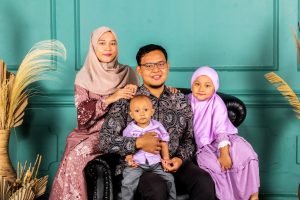
Understanding the Traditional Gender Roles in Islamic Marriages
To explore the complexities of gender roles in Islamic marriages, it is crucial to delve into the historical context and the teachings of the Quran. One prominent figure that exemplifies the traditional gender roles in Islamic marriages is Khadija, the beloved wife of Muhammadﷺ. Khadija played a pivotal role in supporting and empowering her husband, and her success as a businesswoman challenged the societal norms of her time.
Furthermore, the traditional gender roles are evident in the Quran, where men are regarded as the maintainers and protectors of women. While this may seem to perpetuate a patriarchal structure, it is essential to interpret these verses within the broader framework of mutual respect and cooperation. Islamic marriages are meant to be partnerships, where both partners contribute to the family’s well-being and share equal responsibility for the household.
Challenges and Limitations of Traditional Gender Roles
While the traditional gender roles in Islamic marriages have provided a sense of stability and structure, they have also presented challenges and limitations. The expectation for men to solely bear the financial burden can lead to immense pressure and stress. Similarly, women may feel confined to domestic roles, unable to fully explore their potential and pursue their aspirations outside of the household.
Moreover, the rigid adherence to traditional gender roles can hinder effective communication and prevent the development of a healthy, balanced relationship. It is crucial to recognise that each individual brings unique strengths and talents to the marriage, irrespective of their gender. By breaking free from societal expectations and embracing a more egalitarian approach, couples can foster a harmonious and fulfilling partnership.
Shifting Dynamics: New Perspectives on Gender Roles in Islamic Marriages
In recent years, there has been a paradigm shift in the understanding of gender roles in Islamic marriages. Many progressive scholars argue that the Quran encourages a flexible and adaptable approach to gender roles, emphasising the importance of shared decision-making and mutual respect. This evolving perspective challenges the traditional notion of gender roles and encourages couples to redefine their roles based on their individual strengths and circumstances.
One example of progressive gender roles in Islamic marriages can be found in Morocco, where Fatima al-Fihri, a renowned scholar, founded the world’s first university in the ninth century. Her remarkable achievement demonstrates that Islam has a rich history of empowering women and promoting their intellectual growth. By highlighting such examples, we can inspire and encourage individuals to challenge societal norms and embrace their own potential.
Navigating Gender Roles Through Communication and Compromise
Effective communication and compromise are vital in navigating gender roles within Islamic marriages. By engaging in open and honest conversations, couples can better understand each other’s expectations and desires. It is essential to create a safe space where both partners can express their needs and concerns without judgment or fear.
Compromise plays a crucial role in finding a balance that works for both individuals. This may involve redefining traditional gender roles and distributing responsibilities based on each partner’s strengths and interests. For instance, a couple may decide to share household chores and childcare equally, allowing both partners to pursue their careers and personal goals.
The Role of Education and Empowerment in Challenging Gender Roles
Education and empowerment are powerful tools in challenging and transforming gender roles within Islamic marriages. By educating individuals about the true teachings of Islam, emphasising its emphasis on justice, compassion, and equality, we can dispel misconceptions and stereotypes that perpetuate rigid gender roles.
Empowering women through education and providing them with opportunities for personal and professional growth can contribute to more balanced and equitable marriages. When women are equipped with knowledge and skills, they can actively participate in decision-making processes, contribute to the family’s financial well-being, and become agents of change within their communities.
Addressing Misconceptions and Stereotypes in Islamic Marriages
Misconceptions and stereotypes surrounding gender roles in Islamic marriages often stem from a lack of knowledge and understanding. It is essential to address these misconceptions head-on and promote dialogue and education to foster greater understanding and acceptance.
By highlighting stories and experiences of individuals who have successfully navigated gender roles in their Islamic marriages, we can challenge preconceived notions and demonstrate the diversity and richness within Islamic communities. This will help break down stereotypes and promote a more inclusive and compassionate society.
Promoting Equality and Equity in Islamic Marriages
Promoting equality and equity in Islamic marriages requires a collective effort from individuals, communities, and religious leaders. Mosques and Islamic organisations can play a pivotal role in fostering an environment that encourages open dialogue and supports individuals in navigating gender roles.
Religious leaders have a responsibility to educate themselves about the evolving perspectives on gender roles and share this knowledge with their congregations. By incorporating more inclusive language and promoting a balanced understanding of gender roles, they can inspire positive change within their communities.
Celebrating Diversity: Examples of Progressive Gender Roles in Islamic Marriages
To celebrate the diversity and progressiveness within Islamic marriages, we can look to contemporary examples that challenge traditional gender norms. Many couples today are redefining gender roles based on their unique circumstances and aspirations.
For instance, some couples choose to share financial responsibilities equally, while others may take turns being the primary caregiver for their children. These examples demonstrate that Islamic marriages can be a source of empowerment and fulfilment for both partners, irrespective of their gender.
Conclusion: Embracing Change and Building Inclusive Islamic Communities
In conclusion, navigating gender roles in Islamic marriages requires a willingness to challenge traditional norms, communicate openly, and embrace change. By understanding the historical context, addressing misconceptions, and promoting equality and equity, we can build inclusive Islamic communities where individuals are free to explore their potential and thrive.
It is crucial to remember that Islam is a religion that values justice, compassion, and respect for all individuals, regardless of their gender. By embracing these values and working towards creating harmonious partnerships, we can navigate gender roles in Islamic marriages and build a future that is inclusive and empowering for all.
CTA: Join the conversation and share your experiences in navigating gender roles in Islamic marriages. Together, let’s create a more inclusive and equitable future.

